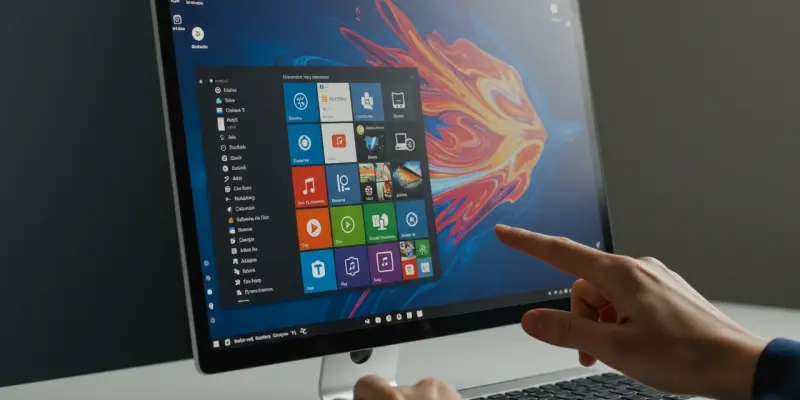The technology landscape continuously evolves, requiring software giants to adapt swiftly, and Microsoft is no exception. The release of KB5058502 for Windows 11 exemplifies Microsoft’s commitment to refining and improving the user experience in its operating systems. This update focuses on older versions of Windows 11, such as Windows 11 23## and the Enterprise and Education editions of Windows 11 22##. By implementing significant enhancements and addressing key technical issues, the update reflects how the company remains responsive to user needs and current technology trends. These updates combine reliability with innovation, signaling a strategic approach to software improvement.
Expanding AI Capabilities in Windows 11
Integration with Copilot and AI Advancements
With the KB5058502 update, Microsoft takes a bold step in AI integration by enhancing the capabilities of its digital assistant, Copilot. Users can now open Copilot using a customizable “Win + C” shortcut, showcasing Microsoft’s intention to provide a more intuitive interface. Furthermore, the update introduces voice interaction capabilities, allowing users to engage with Copilot using spoken commands, thus aligning with the ongoing trend of voice-activated technology. By focusing on AI integration, Microsoft aims to make interactions more seamless and natural, emphasizing convenience and efficiency for users across various demographics. The inclusion of Copilot reflects a dedicated effort to embrace future technological trends while maintaining ease of access. The ongoing enhancement of AI functions signifies a deeper incorporation of AI into daily technological routines, fundamentally transforming user engagement with their devices.
Regional Adaptations and Search Improvements
In addition to AI enhancements, the KB5058502 update also prioritizes improvements to web search integration within the European Economic Area (EEA). By enhancing support for web search providers in Windows Search, Microsoft seeks to refine regional service offerings and comply with local regulatory standards. This focus on localization allows Windows 11 to deliver more relevant search results tailored to individual regions, thereby increasing usability and satisfaction. The update also introduces new administrative policy configurations, granting admins greater control over taskbar applications and widget customization. This focus on customization allows organizations to tailor their systems reflecting specific regional and operational needs, thus ensuring that software environments are adaptable and efficient. These enhancements underscore Microsoft’s focus on user-centric design and adaptability while balancing regional needs with technological advancements.
Comprehensive System Enhancements and Fixes
Addressing Technical Challenges
While introducing new features is vital, addressing existing technical issues is equally important, a priority reflected in the KB5058502 update. Microsoft has targeted various system problems, including Explorer glitches, HoloLens compatibility issues, Windows Update errors, blue screen incidents, and memory leaks. By focusing on these critical areas, the company aims to improve system stability and create a smoother user experience. A proactive approach to solving these technical issues not only bolsters the present system but also lays the groundwork for future enhancements. By resolving existing bugs, Microsoft reduces potential disruptions, ensuring that users have a reliable operating system. This strategic focus on technical precision illustrates how Microsoft is addressing current feedback, reinforcing user trust in its software solutions with steadfast improvements.
Encouraging User Customization
Apart from fixing issues, KB5058502 also emphasizes expanding customization options, aligning with user expectations for personalized computing experiences. New widget updates, including a personalized Lock screen weather widget, provide users with the ability to tailor their operating systems to better suit personal preferences. Such updates reflect a broader trend in contemporary software design, where flexibility and adaptation to individual uses are paramount.
Moreover, the targeted improvements aiming not only at aesthetics but also functional efficiency emphasize a balanced approach. With taskbar application policies, administrators gain better control over user interfaces, thus fostering enhanced productivity. This focus signals Microsoft’s shifting strategy towards creating a personalized yet uniform experience, urging users across varied platforms to engage more deeply with their devices.
Strategic Insights for Windows 11’s Future
The tech scene is always changing, pushing software leaders to quickly adapt, and Microsoft is no exception. The release of KB5058502 for Windows 11 shows Microsoft’s ongoing effort to enhance and elevate the user experience in its operating systems. This update targets older versions of Windows 11, particularly Windows 11 23## and the Enterprise and Education editions of Windows 11 22##. By embedding major improvements and tackling critical technical challenges, the update demonstrates the company’s nimbleness in addressing user needs and staying aligned with evolving technology trends. These updates blend reliability with innovation, reflecting a strategic stance towards software development. Microsoft’s forward-thinking approach aims to integrate new functionalities while ensuring system stability, ensuring they cater to the varied needs of their expansive user base. As the tech field progresses, such initiatives are crucial for maintaining user satisfaction and remaining competitive.

